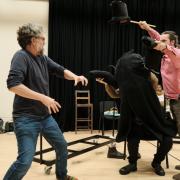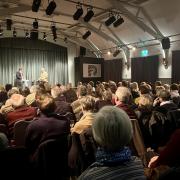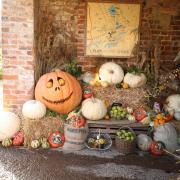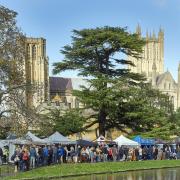When author and broadcaster James Crowden began researching the life and work of a relatively unknown war poet, he turned detective and tracked down some unpublished letters and photographs for a fascinating book.
Flowers in the Minefields uncovers the story of war poet John Jarmain, from Somerset, who lived in West Pennard and taught at Millfield School.
An edition of his poetry was published, with good reviews, in 1945, but his work has long been out of print and little is known about him.
James felt it was time to reassess this fine writer and his unusual contribution to poetry. He knew that there was a much bigger story to be found and endeavoured to dig deeper.
He says: “I got to know a vast amount about him through his daughter who I found totally by chance. When her mother died in 1990 she discovered about 150 letters her father had written to her mother. It was 10 years before she could bring herself to read them.”
Jarmain had sent these letter to his wife while he was serving as an anti-tank gunner during the Second World War. They were often written at night in a small dugout by the light of the moon. And inside these letters were his poems.
James, who lives in Somerset, continues: “The letters were all numbered but it was only by doing the military history research that I was able to work out that he was often in the middle of a battle while he was writing. He wouldn’t have told his wife that but when you piece it together it becomes interesting.”
Jarmain was attached to the 51st Highland Division and saw action at El Alamein and through to the capture of Sicily.
He wrote about two dozen poems which would count as war poems. In one of them he anticipates his own death even before he had joined up.
James adds: “I met someone who served with him who said he was a very brave man, often driving round under fire. He wrote a lot of his poetry in trenches ‘in front’ of the front line which was quite extraordinary. Yet he wasn’t a gung-ho officer at all, but very well-versed in European politics and affairs. I discovered a very sensitive and intelligent man.”
John Jarmain was killed in Normandy in 1944. His novel, Priddy Barrows, based on the Mendips, was published just after his death.
*Flowers in the Minefields: El Alamein to St Honorine, by James Crowden, is published by Flagon Press and is available from james-crowden.co.uk
Extract from Orchids, by John Jarmain
But I will remember purple orchids,
Early purples in the fields above Cheddar,
With spotted orchids among them: -
Small pointed trumpets on a tiny stem
(Flowers fading to pink in the sun of Summer),
With the rusty-black spotted green leaves.
These are flowers for a song, grown of the fields,
These I will remember.



























